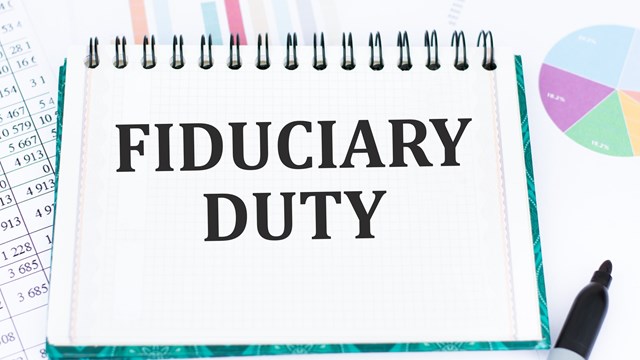The term "multi-tasking" may have been coined to describe property managers: their line of work requires its practitioners to know a little something about nearly everything, to have an impeccable demeanor, lightning-quick problem solving skills, and of course the patience of a saint.
How then, are these people identified, hired and put to task? The answer is twofold: some people are born with these extraordinary skills, and some acquire them from years of experience. Either way, the list of skills property managers use to keep residents and board alike happy and day-to-day operations of a homeowners association (HOA) running smoothly include an unprecedented ability to organize, coupled with attention to detail that would leave Martha Stewart reeling.
Nuts and Bolts
According to Rick Fry, a principal with RCP Management in Princeton, the diverse alliance of skills that come together to make a good property manager can be divided into a basic hierarchy—parts of which are put into practice every single day, while others simply make the job easier when unforeseen crises arise.
The first set of skills covers the absolute basics: reading, writing, and simple arithmetic. According to Fry, while it may seem obvious, good writing skills and the ability to easily translate one's thoughts onto paper or e-mail is an important tool good managers put to use all the time. A managing agent unable to communicate clearly in writing will find him—or herself frustrated, and will likely frustrate his or her clients as well.
Paul Santoriello, PKM, the president of Taylor Management in Morristown, and chairman of the Community Associations Institute (CAI)'s Political Action Committee agrees. "You need to have the ability to communicate. That is what we do—we don't cut grass, we don't hammer any nails; we are the great communicators. We communicate with everybody from the unit owner to the board to the vendors to the municipalities. So strong verbal and written communication skills are a must for a good manager."
In addition to certain very basic skills, Fry feels that it's incumbent upon managers to have a very strong understanding of their community's physical plant: the basic structure of the units that make it up, their HVAC networks, electrical schema, and so forth. A manager doesn't need to know how to reassemble a boiler from scratch, says Fry, but someone with a good working knowledge of how that boiler operates can converse more confidently with contractors and repair and maintenance professionals. A knowledgeable manager also knows just who to call if something goes wrong and needs work, and can tell repair technicians exactly where the problem lies.
People Persons
Given that such a large part of any involved manager's day is taken up with face-to-face interactions with the people who live in an HOA, good interpersonal skills are a must for any successful property manager.
According to Fry, a manager needs "a strong ability to empathize when you're being confronted sometimes by angry people who aren't angry with you, per se, but with the situation." Managers facing upset, sometimes hostile residents or homeowners have to develop a thick skin—without becoming jaded or inured to the plight and problems of others.
"They way you treat others is a direct reflection of the pride and care you take in your job," says Santoriello. "You have to be understanding, and be a leader rather than a follower."
Running the Show
Along with the most obvious things, like being able to write well and knowing where the electric meters are located—and the less obvious, like being a good, empathetic listener, a manager should also know his or her way around an office and should have a passing understanding of administrative, legal, and financial issues.
"A manager must have the ability to read and understand financial statements and how statements relate," says Fry. "How a balance sheet relates to a budget comparison, for example."
"You may not be a CPA," says Santoriello, "but you have to be able to understand and read financial spreadsheets. And obviously administrative skills are important, along with solid computer skills, and a basic understanding of applicable laws and legislation."
In addition to all this, Santoriello says he feels that certification is important for property managers as well.
"It's something I believe is very important that we want to work toward in New Jersey. I am very much in support of this being a requirement for all individuals who manage community associations. They should have certification from a governing body."
The breadth and depth of a manager's understanding of various issues sometimes depends on the size of the community or development they're managing. Managers in smaller firms often find themselves wearing more hats than one working for a huge company with hundreds of agents.
While Fry hesitates to generalize and say that managers working for larger firms handle more or less responsibility than the other, he does feel that, "Unequivocally in a smaller firm a manager is going to have to wear more hats and be involved in more aspects. They deal with more of the minutia and things that could be dealt with by administrative support in a larger firm. We have a belief on how many communities a manager can effectively manage—but every firm is different."
The Good Manager's Role
Regardless of the size of the property, Fry continues, "The manager is really the administrative agent for the members of the board. They are the voice of the board policy, and they're a conduit for communications between members of the association and the board, as well as vendors and other professionals. A manager is there to provide sound guidance on industry standards and should be able to keep the board and homeowners abreast of industry trends."
"The association manager should be attentive to both the unit owners and the board," says Santoriello. "It's a very unique position to be in, because you can have upwards of nine 'bosses' on the board, yet you need to encourage the board to speak as one body. You can't allow yourself to be put between two different board members."
"More importantly," continues Santoriello, "while the board members are your bosses, you have to know more than your bosses do. You must be able lead those who are your superiors and guide them in a direction that you know professionally is the right direction. What we strive to do is to help our board members be better board members in functioning on a policy governance level."
And even if a manager doesn't have first-hand, on-the-ground experience with a certain issue or subject, a good one can still be of help to a board trying to navigate unfamiliar territory. According to Fry, "When a manager is doing a good job, they can guide the board through areas that the manager may not necessarily have any expertise in, whether that's satellite dishes or dealing with an aging infrastructure. Even a newer manager can help to provide some product background, or possible avenues to address the problem. They can work with the board and association members, walking them through the pros and cons so they can make informed decisions. That way, everybody learns for next time."
Making Good with Faint Praise
So how can a board and association membership tell a good manager from a less-than-ideal one, and judge the performance of their own management firm and manager?
First of all, says Fry, "The most typical complaint most management agencies hear from boards and homeowners is about communication. Quite often, these are unjust criticisms—it could very well be a contractor who is not responding to an agent's repeated inquiries, rather than the agent not responding to the board."
That said, however, it's not uncommon for board and association members to complain that repeated attempts to contact their agent have gone unheeded. If you're a manager getting complaints that phone calls to your office are not being returned in a timely manner, it may be time to reassess your phone answering system, or get some help with your correspondence.
Santoriello couldn't agree more. "The cream always rises. The reality of this business is that there are so many people a managing agent is accountable to that they'll be revealed if they're not doing their job."
Monthly board meetings and the opinion of vendors will also reveal the truth of a manager's performance, says Santoriello. "That's because during meetings, you go over your monthly action items. These are all the things that the manager was requested to do. It'll show how competent he or she is at doing them, as well as how timely. How you treat and interact with vendors is another way to measure performance. You have to take care of them and get them paid on time for the work that they do. A vendor is going to know if the manager is good or not."
Even the manager who dutifully answers every communication, pays bills before they're due, and is at his or her clients' disposal 24/7 often finds that praise and gestures of appreciation are in short supply, however.
"This is not a typical business where people call and say, 'Hey, you're doing a great job,'" says Fry. "If there's a lack of complaints, that's a great indicator that both manager and management company is doing a good job—no news is good news."
Behind Every Good Manager
Even the best, most committed, most self-motivated property manager can't do it alone, however. Professional management firms do their part to support their agents' efforts with seminars, continuing education courses, accreditation, and awards.
According to Fry, RCP Management holds two monthly training sessions to help their agents hone their skills and gain new ones.
"We have various vendors and professionals within or from outside our industry come in and talk to our managers about a myriad of topics," says Fry of his company's continuing education of its employees. "We're very consistent in that. There is also the Community Associations Institute, a national non profit educational association, strictly for condo/homeowner associations, land unit development and co-ops which provides local, regional, and national training sessions."
Santoriello's firm goes right to the source for evaluations of their managers' performance: they send evaluation forms right to unit owners.
"We send the owners in our communities requests for evaluation of the company as a whole," says Santoriello, "as well as the managers themselves."
At the End of the (Long) Day
In the end, the people with the blend of practical, professional, and interpersonal skills to effectively manage a residential property don't come along every day. "There just aren't enough good, qualified managers out there," says Santoriello, "You can handle a lot if you are set up properly if you have a lot of qualified people to do the work."
"Managers need to know about landscaping, about plumbing, and pool pumps and roofing," says Fry, along with conflict resolution, negotiation, mediation, and public speaking. "It takes a very diverse scope of knowledge to be an effective manager."
David Garry is a freelance writer living in Manhattan.







Comments
Leave a Comment